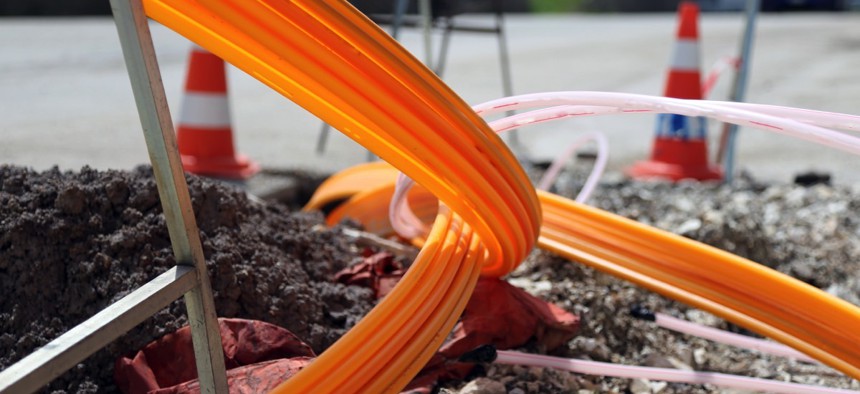A New Accelerator for Community-Owned Broadband Networks

Some of the communities selected will be able to begin building within a matter of months.
A San Francisco-based online investment platform plans to launch a Community Broadband Accelerator in the coming months to help localities quickly establish community-owned networks.
In November, Neighborly will announce its first cohort of communities, which will have access to its financing at a discount.
With 19 million Americans, 6 percent of the population, lacking access to broadband at minimum speeds, networks aren’t being built fast enough, Garrett Brinker, Neighborly’s product manager, told Route Fifty.
“We really see community broadband networks as the 21st century’s bridges that spur economic development,” Brinker said.
But the conversation about financing projects often occurs too late in the process, he added.
Once a participating community decides to build a network, it can use Neighborly’s mapping, demand aggregation and marketing tools to funnel in capital.
For its first cohort, the accelerator is looking for communities already seeing movement on broadband from local government or local advocacy groups. Brinker anticipates some of the communities selected will be able to begin building within a matter of months.
“That’s where we see the power of a community-owned model,” he said. “We believe that access to the internet should be equal by design.”
By building an open-access network much like Ammon, Idaho—a city of about 15,300 people—communities will incentivize private internet service providers using it to provide faster service at low cost. That’s opposed to a single private operator lacking the financial motivation to align their infrastructure anywhere other than the most affluent neighborhoods in a community.
The deadline for communities to apply to be a part of the accelerator is Sept. 28.
CBA wants to scale broadband networks across communities big and small by working with partners like Axiom, Island Institute, the Local Government Commission, and Next Century Cities.
“These networks only get built if everyone is able to come to the table,” Brinker said.
Dave Nyczepir is a News Editor at Government Executive’s Route Fifty and is based in Washington, D.C.
NEXT STORY: Local Governments Aren’t Waiting for States to Raise Smoking Age






